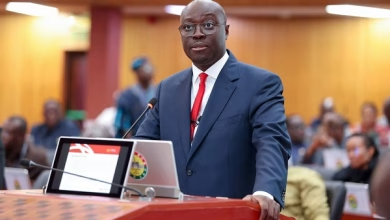The United Nations (UN) Resident Coordinator for Ghana, Charles Abani, has emphasized the critical importance of addressing illegal mining, or “galamsey,” as a prerequisite for establishing a sustainable economy.
In his keynote address at the launch of the Institute of Sustainability Professionals Ghana (ISPG), he outlined the devastating impacts of illegal mining on people, poverty, jobs, child labor, the environment, and water, as well as its contribution to illicit financial flows.
According to the UN, illegal mining in the region leads to a minimum of US$3 billion in illicit financial flows annually.
This figure highlights the significant economic costs associated with this practice and underscores the need for urgent action.
Abani argued that by tackling galamsey, Ghana could unlock its potential for sustainable development and create a more prosperous future.
A study by the Africa Centre for Energy Policy (ACEP) corroborated the UN’s findings, estimating that illegal mining alone cost Ghana US$1.7 billion in 2013.
These figures demonstrate the substantial financial losses incurred by the country due to this illicit activity.
Abani urged citizens to actively engage in discussions about illegal and unregulated mining, recognizing its catalytic role in transforming the economy and achieving sustainability.
He emphasized the importance of a holistic approach to sustainability, encompassing environmental, social, and governance considerations.
The ISPG aims to promote sustainability practices, foster professional development, and provide a platform for knowledge exchange and collaboration. By focusing on sustainability, the institute seeks to empower companies and SMEs to grow their businesses while preserving the environment for future generations.
President of the ISPG, Professor Mathew Tsamenyi, highlighted the institute’s commitment to creating a unified platform for sustainability discussions, ensuring standardization, and educating stakeholders on sustainability issues. He emphasized the importance of equipping individuals and organizations with the knowledge and tools necessary to drive sustainable development.
Majorie Quansah, Programmes Officer at the ISPG, underscored the growing significance of sustainability in response to the impacts of climate change. She called upon institutions and individuals to join the institute and expand their understanding of sustainability issues.
To ensure the long-term success of the ISPG, the organization plans to seek parliamentary charter and legal entrenchment. This move will solidify its position as a key player in driving sustainability initiatives in Ghana.
By addressing illegal mining and promoting sustainability, Ghana can create a more resilient, equitable, and prosperous future for its citizens and generations to come.
